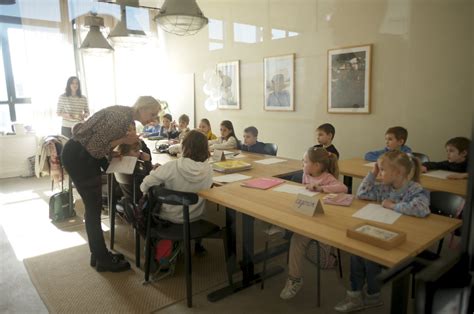Students across Germany may soon find themselves engaged in a different kind of lesson – one that could potentially save lives. Roderich Kiesewetter, a prominent figure in the German political landscape, has sparked conversations about the importance of crisis training for students in the wake of escalating tensions fueled by Russia’s actions.
“It is absolutely necessary to practice emergency scenarios, as students are particularly vulnerable and especially affected in such situations,”
emphasized Kiesewetter, who holds a key position as the deputy chair of the Bundestag’s intelligence oversight committee. His calls for preparedness stem from a deep concern for the safety and well-being of young individuals amidst geopolitical uncertainties.
Drawing parallels with Finland where similar training programs are already in place, Kiesewetter envisions a proactive approach that equips students with essential skills to navigate disaster situations effectively. This move isn’t merely about responding to immediate threats but also hints at broader considerations like potential national service obligations.
The urgency for crisis training gains further momentum against the backdrop of Russia’s aggressive posturing and its ongoing conflict with Ukraine. As fears loom over potential spillover effects on European stability, policymakers in Germany are taking proactive measures to ensure their citizens are well-equipped to handle unforeseen challenges.
“In view of recent developments in the security situation, a stronger focus should be placed on civil protection, including in school education,”
echoed a spokesperson from the German interior ministry. This sentiment underscores a collective acknowledgement within governmental circles regarding the imperative need to fortify civil defense mechanisms at all levels.
As discussions around enhancing emergency preparedness penetrate deeper into Germany’s educational discourse, there is growing recognition that empowering students with practical knowledge can significantly enhance community resilience. By integrating crisis response protocols into school curricula, authorities aim not just to impart theoretical knowledge but also foster a culture of vigilance and readiness among future generations.
Expert analysts weigh in on this unfolding narrative by emphasizing how early exposure to emergency drills can instill crucial life-saving habits among youth. Dr. Petra Müller, an academic specializing in societal risk management, highlights that cultivating a sense of preparedness from an early age can have far-reaching implications beyond individual safety.
Moreover, as Germany braces itself for evolving geopolitical dynamics and potential security challenges on its doorstep, investing in preemptive measures like comprehensive crisis training represents a strategic move towards bolstering national resilience. The lessons learned today within classroom settings could serve as invaluable tools tomorrow during times of uncertainty or crisis.
In essence, what may seem like routine drills within school premises carries profound significance when viewed through the lens of proactive risk mitigation and community empowerment. The narrative unfolding across German educational institutions underscores not just an emphasis on reactive responses but positions preparedness as an integral component shaping future generations’ ability to navigate turbulent waters confidently.




Leave feedback about this